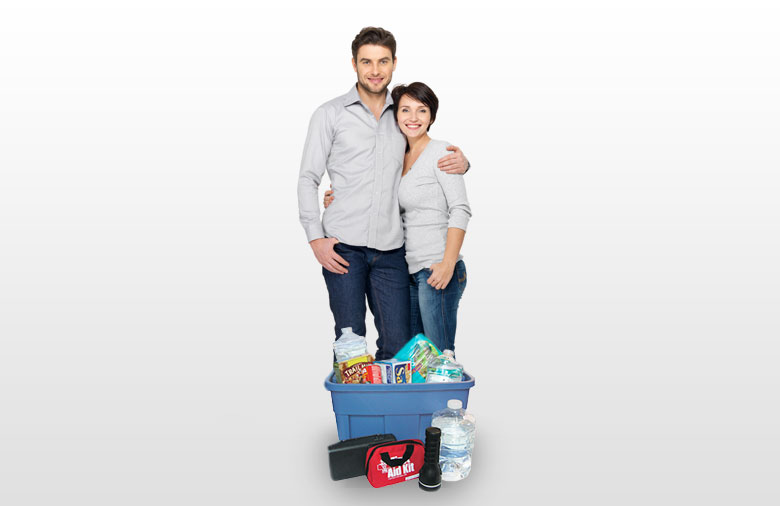Natural disasters can impact you no matter where you live in the world. Whether it be floods, earthquakes, tornados, wildfires or hurricanes, they all have something in common – they happen in the blink of an eye.
Another thing they have in common – disaster planning is the best way to survive. Extensively planning your potential actions before, during and after an event can help you make it through the tough times following a disaster.
Whatever local disaster you’re preparing for, plan for the unexpected, such as how you will access food and water, where you will meet with loved ones if separated and how to safely shut off utilities. You should even plan how you will care for your pets.
One thing is essential. You should also create a disaster kit to protect you and your family immediately following a disaster. Consider adding these items to your kit:
- Water – 1 gallon per person, per day for at least 3 days
- Food – at least enough for 3 days of non-perishable foods
- Manual can opener
- Battery powered radio and spare batteries
- Flashlight and spare batteries
- First aid kit
- Whistle to signal for help
- Dust mask to filter contaminated air
- Plastic sheeting and duct tape to shelter-in-place
- Moist towelettes, garbage bags and plastic ties
- Local maps
- Solar chargers for electronics
Depending on your unique situation, here are other items you may consider adding to your emergency kit:
- Prescription medications and glasses
- Aspirin, anti-diarrhea medication, antacids and laxatives
- Scissors, hammer, screwdrivers and other basic tools
- Instant formula and diapers
- Pet food and extra water
- Cash, traveler’s checks and change
- Important documents – insurance policies, identification and bank accounts
- Sleeping bags and warm blankets for each person
- Complete sets of clothing including underclothes, long sleeved shirt, long pants and sturdy shoes
- Cleaning supplies, laundry soap, bathing and personal hygiene
- Fire extinguisher
- Matches in a waterproof container
- Paper cups, plates, paper towels and utensils
- Paper and pencil
- Book, games and puzzles
Be prepared for specific events common to your area and learn about their warning signs by reading more at Ready.gov or the American Red Cross.
If these tips have helped you realize that you should be prepared for disasters that may impact you, consider sharing this with friends and family.
Sources

Join the Discussion
0 Comments